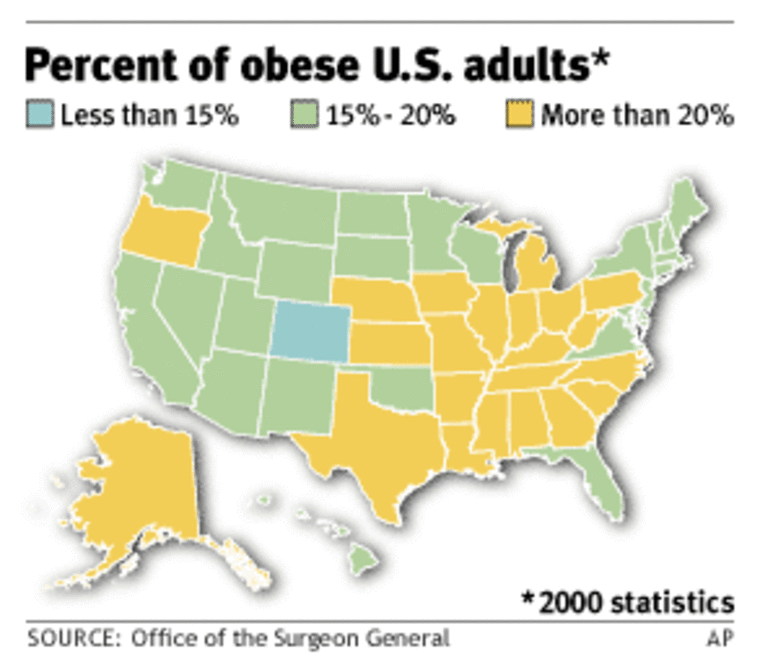What do smokers and drinkers have in common? Neither of them will cost the U.S. economy as much as a fat person. That’s right, obese Americans spend more for health care than heavy smokers or heavy drinkers.
IN FACT, ACCORDING to a study by the Rand Corporation, obese individuals spend approximately 36 percent more than average-sized people on health services, and 77 percent more on medications.
“That’s kind of a shocking result,” said Roland Sturm, who performed the study. “Health care costs are exploding. Any absolute number you quote will be wrong next year.”
This year, that number is about $117 billion. That’s how much obesity costs the U.S. economy in medical claims, lost productivity, lost wages and the value of future earnings lost due to premature death.
Dr. Arthur Frank runs the George Washington University Weight Management Program, and every day he sees the crippling effects of chronic obesity.
“As people go along, they develop more medical complications of their obesity and more and more disability from their obesity, and the more and more disability becomes more and more costly,” Dr. Frank said.
Diabetes, cardiovascular disease, hypertension and gall bladder disease — all of these cost big people big money. Insurance companies, Medicare and Medicaid don’t pay to treat obesity, but only its resulting illnesses. That’s why the price ends up so high.

“There’s a terrible disconnect, even within the federal government. And all of the private health insurance companies have respectfully declined to pay for it because they think they’re getting away with it, but they have to recognize that they’re not getting away with anything,” Dr. Frank said. “They’re just making it more difficult for people to deal with other kinds of medical problems.”
These are problems that weigh heavily on the finances of the federal government, such as the Social Security Administration. Prior to 2000, 137,000 people received $77 million per month for obesity-related disability.
And at the Internal Revenue Service, obesity is now considered to be a disease, so treatment for it can be claimed as a medical deduction.
And what about the cost of being big to big business, such as lost productivity and lost wages?
“They’re probably about the same size as the medical costs, maybe even a little bit higher,” Sturm said.
It’s impossible even to quantify, especially when you factor discrimination into the picture. Face it, fat people don’t often get the jobs they deserve.
“You’ve got a perfectly reasonable, perfectly intelligent, perfectly capable person who is underemployed or is employed in a job that is inappropriate simply because of the weight, then the whole system becomes more inefficient,” Dr. Frank said.
And it’s only getting worse, with Americans tipping the scales higher and higher every year.
The number of obese Americans grew by 60 percent between 1991 and 2000. Sixty-five percent of adults are currently overweight, and here’s what bodes even worse for the future: Ten percent of children between the ages of 2 and 5 years old are already overweight, and the number of overweight teenagers has tripled since 1980 to 15 percent.
The truth is, any figures released will immediately be wrong. The cost of obesity is growing by the minute, with more and more diseases being attributed to being fat — breast cancer, colon cancer, arthritis, stroke and pregnancy complications, just to name a few.
Simply put, the bigger we get, the bigger the bill.